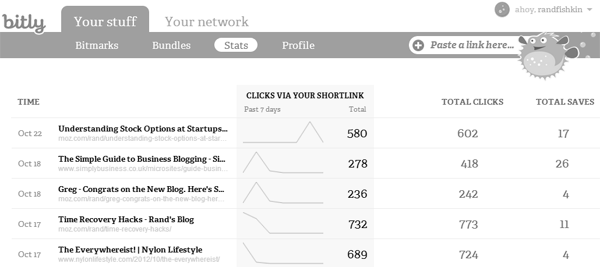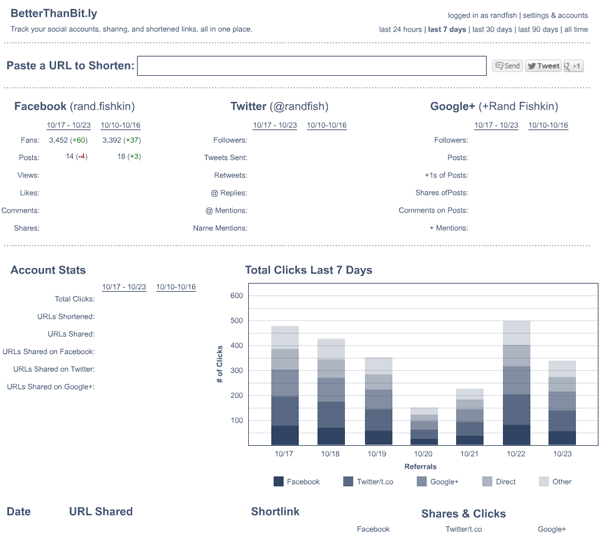Of all the tools I use each day on the web, perhaps none frustrates me more than bit.ly. I like being able to track all the sharing I do across networks with a single URL shortener, but the site’s frustrating from numerous levels. Historic data and habit are most of what keeps me from moving to other services (along with a lack of knowledge of better platforms, though awe.sm seems worth a shot).

We can do better than being forced to take multiple, non-intuitive actions to shorten a URL and getting mediocre analytics data in return. A couple weeks back, I complained on Twitter about this, and received many replies asking what features I’d want to see. So, tonight, I spent a little bit of time noodling on the subject and mocking up a hyper-simplistic wireframe of something that might work better, at least for me.
The result of that wireframing process is below, but beware, this is far, far too simplistic and not-thought-through to be a true product. It’s more of a brainstorm with a visual:
As you can see, I didn’t even have time to fill out all the datapoints next to the rows, which might make it hard to entirely grasp on a first look. Basically, the big features I want to see are:
- An idea of how my social sharing is performing alongside the clicks of my content
- Better analytical breakdowns of my shortening and sharing activity
- The ability to remove a URL (bit.ly enables “archiving” but not true removal)
- Granularity on where my sharing activity is working (in this wireframe I’m just showing 3 networks, but one could imagine inclusion of others – Tumblr, a blog, Pinterest, LinkedIn, etc)
- A big, frickin’ box where I can paste the link right at the top, then share directly to my networks
- Graphs of clicks over time, broken down by social source
- Export to CSV features would be ideal, too
- Some form of tagging, like bit.ly’s “bundles” with metrics granularity across these (this way, I could separate events-based shares from my own blog content from content I share from others’ sites, maybe even split by type of content – image vs. video vs. posts, etc.)
A 30 minute wireframe isn’t going to do this justice, but I strongly believe there’s an opportunity for a better URL shortener to come in and take bit.ly’s place, particularly among marketers attempting to improve their results.
Heck, if no one else is building it, maybe Moz will 🙂

